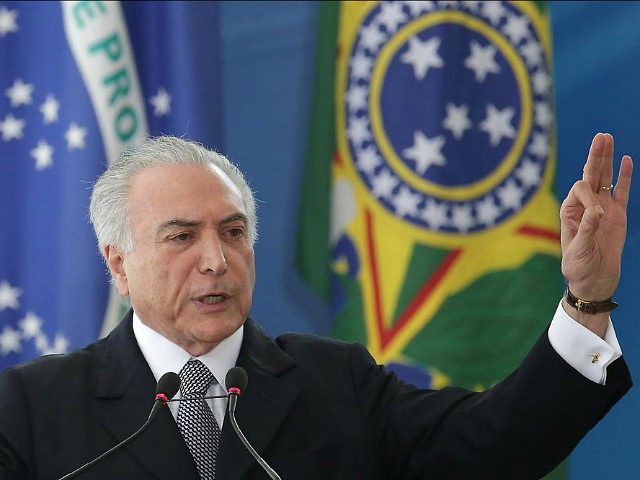The Brazilian Supreme Court has authorized prosecutors to investigate newly-minted president Michel Temer, after a key witness in the sprawling Petrobras corruption trial claimed that Temer had requested illegal funds to help a colleague’s political campaign.
Temer has been officially president since August 31, when the Brazilian Senate finally ratified the impeachment of his predecessor, Dilma Rousseff, on allegations of gross fiscal mismanagement.
Prosecutors now have the green light to investigate Temer’s dealings with Petrobras, the state-owned oil corporation, and whether the claims that he received illegal money from the corporation’s coffers are true.
According to Sergio Machado, the former head of the Petrobras subsidiary Transpetro, Temer requested nearly $500,000 in Petrobras money to fund the candidacy of a politician running on his party’s ticket, the Brazilian Democratic Movement Party (PMDB), in 2012. Temer was Rousseff’s vice president at the time and had not been implicated in the sprawling “Operation Car Wash” investigation before Machado’s testimony. As Brazil has many political parties, presidents and vice presidents from separate parties are not uncommon. Rousseff was the second president to represent the Workers’ Party (PT), established by her predecessor, Luiz Inácio Lula da Silva.
Temer had previously referred to Machado’s testimony as “irresponsible, untruthful, and criminal,” and said of the investigation generally, “When claims of this nature emerge, I will publicly contest them in the interests of maintaining harmony in our nation.” Spokespeople for the president did not respond to any Brazilian media outlets for comment.
The Wall Street Journal notes that a preliminary investigation does not necessarily mean that Temer will be charged with any crimes — as president, he holds executive immunity, limiting the potential scope of the investigation. Rousseff was believed to have used this executive immunity to protect da Silva, and the appearance of such a move helped drive millions to take the streets demanding her ouster in March.
Authorities detained da Silva in March after evidence surfaced that he had used Petrobras public money to build a luxury beach property. Shortly after that detention and interrogation, Rousseff appointed da Silva her chief of staff after he had not held a post in the government since his presidential term ended. The appointment granted him executive immunity. A federal judge, Sergio Moro, released audio following the appointment in which Rousseff, in a phone call, had promised da Silva that she would do precisely that should police get too close to indicting him on any corruption charges.
Rousseff has called Temer a “traitor” and “conspirator” and the impeachment against her a “coup” grounded in sexism.
Da Silva, meanwhile, continues to deny any wrongdoing. After being formally charged on corruption allegations, he made a lengthy public statement in which he sobbed, “I am proud to have created the most important leftist party in Latin America, and having created the party when many people thought it impossible to create… Prove it and I will go on foot [to the police] to go get arrested.”
Petrobras, meanwhile, has failed to recover from the corruption scandal engulfing it. In March, Petrobras reported having lost $9.6 billion in 2015, a record loss for the corporation.

COMMENTS
Please let us know if you're having issues with commenting.